News
Two India‑bound Dreamliners, Two Mid‑Air Scares Within Hours: Both Turn Back

Introduction – Fast Recap
Just days after the tragic crash of Air India Flight AI171 in Ahmedabad, two more Boeing 787‑8 Dreamliners bound for India experienced mid-air technical issues and completed in-flight turnbacks—heightening aviation safety concerns.

Hong Kong → Delhi: Air India Flight AI315
Incident Overview
On June 16, 2025, Air India flight AI315 departed Hong Kong for Delhi. Approximately 90 minutes into the flight, pilots identified a possible technical issue and requested to remain near Hong Kong before safely returning
Flight data & crew response
Flight data indicate the aircraft ascended to ~22,000 ft before initiating descent back to Hong Kong. Pilots communicated: “We don’t want to continue further” The Dreamliner landed without incident and is undergoing inspections

London → Chennai: British Airways Flight BA35
A British Airways Boeing 787‑8 en route from London Heathrow to Chennai also returned mid-flight on June 15. The flight reportedly dumped fuel, circled over Dover, and landed safely at Heathrow due to a “technical issue”—described by the airline as a standard precaution

Broader Context and Timing
Ahmedabad crash aftermath
Only days earlier, on June 12, Air India Flight AI171, another 787‑8, tragically crashed after takeoff from Ahmedabad, killing 279 people (241 aboard, 38 on the ground). That crash has spurred urgent regulatory checks across 787 fleets
Safety scrutiny escalated
Following the Ahmedabad disaster, India’s DGCA mandated enhanced inspections for Boeing 787‑8/9 aircraft—covering fuel systems, flaps, compressors, engine controls, and takeoff thrust parameters

What It Means for Air Travel
- Passenger confidence shaken – Repeated in-flight turnbacks involving the same aircraft model raise red flags and could dent trust.
- Operator vigilance – Air India and BA protocols reflect strong safety-first decisions.
- Boeing’s safety review – Recent Dreamliner setbacks, including this crash and prior battery/flap issues, put Boeing’s quality controls under renewed scrutiny
News
Air India Targeted: DGCA Launches Safety Audit Following Ahmedabad Accident
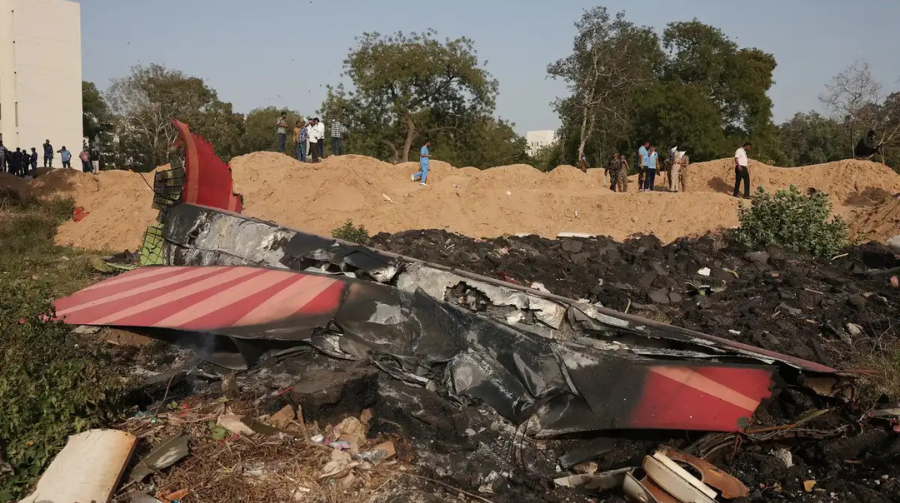
India’s Directorate General of Civil Aviation (DGCA) has initiated a comprehensive safety audit of Air India, triggered by the deadly Boeing 787 Dreamliner crash in Ahmedabad on June 12, which claimed 271 lives.

Why the Audit Was Ordered
The crash of Air India Flight AI-982 shocked the nation. Early reports point to operational lapses and possible crew mismanagement. In response, the DGCA announced an urgent audit from June 24 to 26 across Air India’s main operational hubs.

What the Audit Will Cover
The DGCA audit will investigate:
- Flight operations and SOP adherence
- Pilot duty hours and crew fatigue management
- Cabin safety and emergency preparedness
- Maintenance records and technical inspections
- Training and simulator usage records
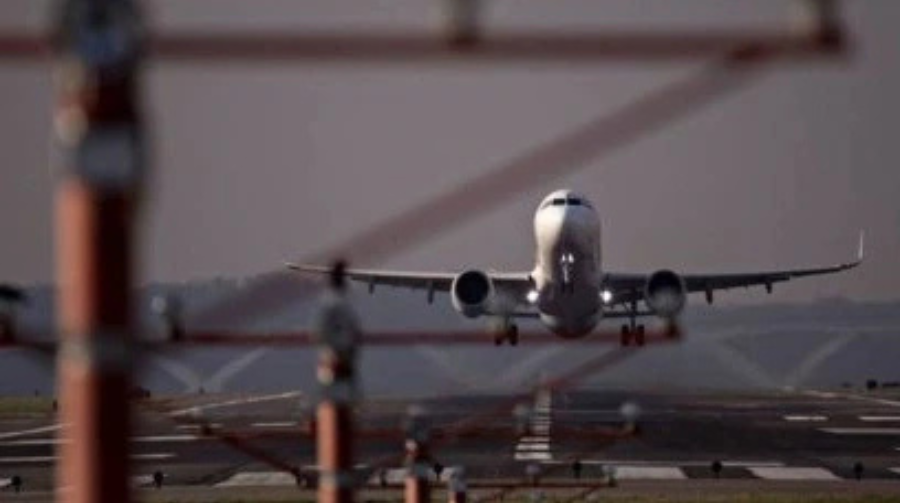
DGCA’s Previous Warnings to Air India
Even before the June crash, DGCA had flagged:
- Irregularities in cabin crew rostering
- Concerns over pilot rest periods and flight-hour limits
- Non-compliance with mandatory reporting protocols
Three senior officials were removed from duty last month after repeated non-compliance warnings.

Air India’s Response
Air India stated that it:
- Welcomes the audit
- Will fully cooperate with DGCA
- Has initiated an internal review of its operational protocols
The airline also offered financial assistance and counseling support to victims’ families.
Implications for Indian Aviation
- The incident raises concerns about oversight of privatized carriers
- Could trigger audits for other airlines (e.g., IndiGo, Akasa)
- Might lead to stricter enforcement of safety protocols across all carriers
News
Israel–Iran Conflict LIVE: Israel Katz Vows “Forceful” Military Response
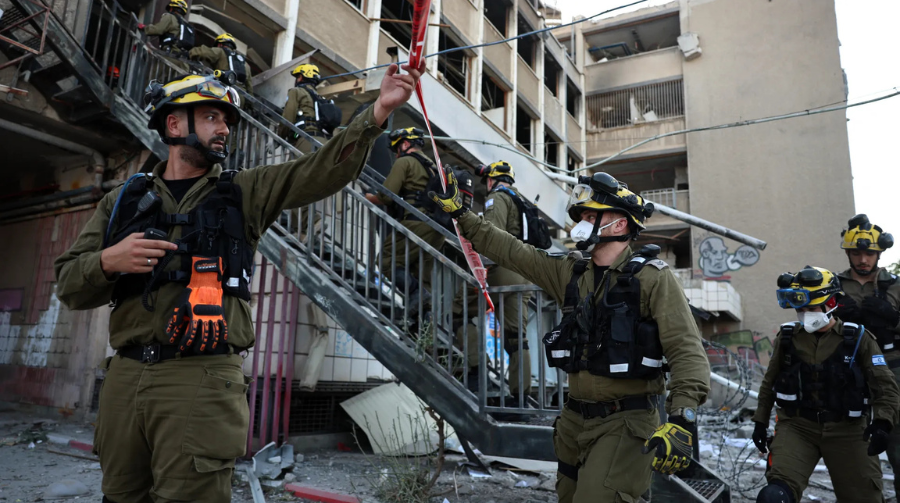
Israel’s Defense Minister, Israel Katz, has instructed the Israeli Defense Forces (IDF) to “respond forcefully” following Iranian missile launches that reportedly breached a U.S.-brokered ceasefire. Here’s where the situation stands:

What’s Happened So Far
- Iranian Missile Fire
Iran launched multiple ballistic missiles toward Israel mere hours after a U.S.-backed ceasefire was announced by former President Donald Trump. Some missiles were intercepted, but others struck targets including residential buildings in Beersheba, causing fatalities and injuries - IDF’s Response Order
In reaction, Defense Minister Israel Katz confirmed he has ordered the IDF to “respond forcefully” with intensified strikes targeting regime-critical sites in Tehran - Ceasefire in Disarray
The initial ceasefire—intended by Trump to last 12 hours—was disrupted. Both sides continue hostilities despite official statements, with Israel hitting Iranian missile facilities and Iran retaliating with further missile and drone attacks

Immediate Impact
- Civilian Casualties
- In Iran: Follow-up Israeli airstrikes reportedly targeted Tehran’s nuclear-related sites and regime infrastructure, including Evin Prison, resulting in significant damage and reported casualties
- Regional Weaponization
Additional strikes were reported, including drone-launched missiles hitting U.S. bases in Qatar. The U.S. responded with strikes on Iranian nuclear installations

Geopolitical Backdrop
- U.S. Involvement
President Trump hailed the ceasefire as a diplomatic success. However, with hostilities continuing, U.S. forces engaged Iranian-led threats, triggering fresh strikes - International Concerns
Global leaders—including those from the EU, UN, and China—are urging restraint. The unfolding situation raises fears of a wider regional conflagration .

What to Watch Next
- IDF Operations – Will Israel follow through on Katz’s directive with large-scale strikes on Tehran?
- Missile & Drone Exchanges – More launches from Iran (or allies) could provoke further escalation.
- U.S. Military Posture – Monitoring how the U.S. responds to threats against its forces in the region.
- Ceasefire Viability – Despite official declarations, the situation remains volatile; Israel maintains high alert across civilian zones
News
Snake Charmers Release Snakes in Moving Train, Passengers Panic
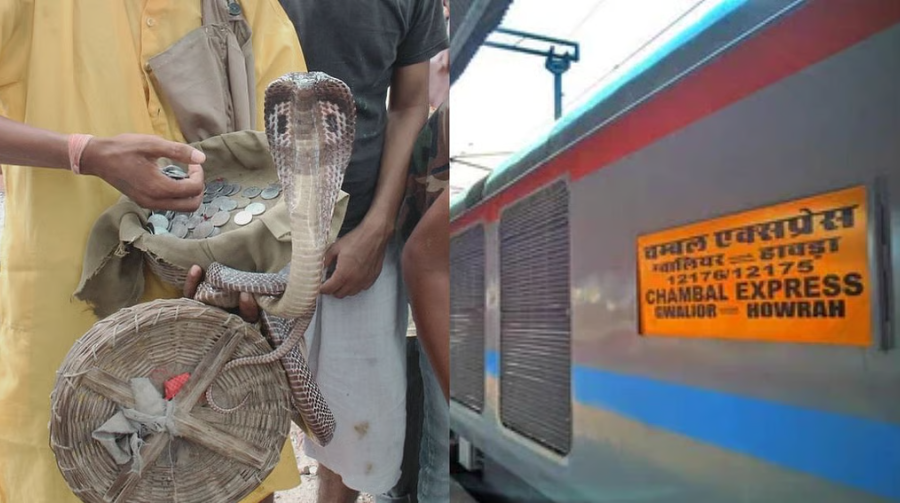
Snake charmers allegedly let loose snakes inside a moving passenger train in Uttar Pradesh, creating chaos and fear among commuters.
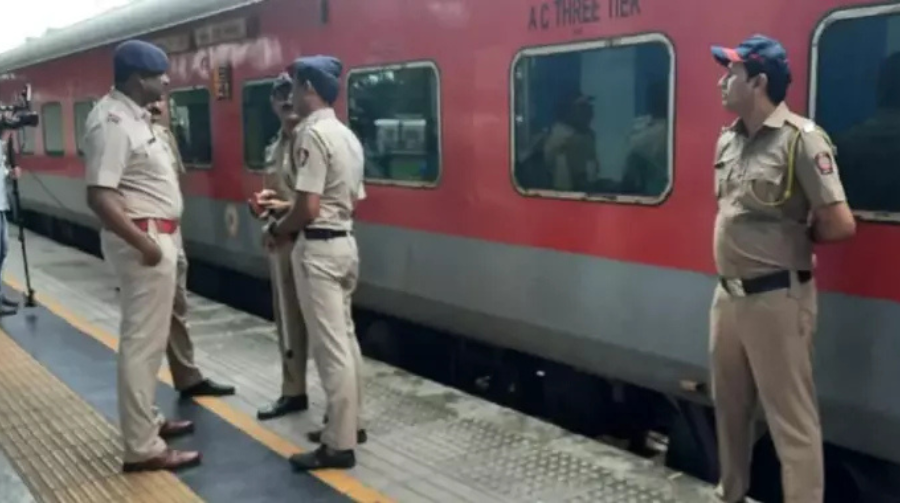
What Happened
- A group of itinerant snake charmers boarded the Chambal Express (Howrah–Gwalior route) in a general-class coach without tickets, requesting donations for their snakes
- When some passengers refused to pay, the charmers reportedly released cobras into the coach to intimidate them .
- A travel influencer onboard captured a chilling moment: the charmer waved a cobra near passengers—even using it to wake sleeping travelers

Passenger Reaction & Intervention
- Panic erupted as passengers hurriedly moved, some climbing seats, while fear spread through the coach
- After creating the disturbance, the charmers reportedly caught the snakes and escaped by jumping off near Mahoba station, leaving behind alarmed passengers
- According to local reports, Railway Police (GRP) conducted a thorough search, relocated frightened passengers, and filed a case against the unidentified charmers

Broader Context
- Similar incidents have occurred in the past, including on the Jan Shatabdi Express, where a snake sighting caused panic and coach evacuation
- Snake charming is now largely illegal in India under the Wildlife Protection Act, 1972, but some performers still carry snakes—sometimes disabling venomous features—to maintain their act

Implications
- Passenger safety: Such stunts endanger lives and strain both commuters and railway staff.
- Policy enforcement: Highlights need for stricter Railway and Wildlife Act enforcement to prevent wildlife misuse.
- Increased surveillance: Suggests need for vigilance on general coaches and proactive patrolling by Railway Police.
-

 News1 month ago
News1 month agoEx-Cricketer Shikhar Dhawan Buys Ultra-Luxury Apartment Worth ₹69 Crore in Gurugram
-

 News1 month ago
News1 month agoIndia offers zero-for-zero tariffs on auto parts, steel from US
-

 Sports2 months ago
Sports2 months agoIPL 2025 Suspended: IPL suspended for only this many days? BCCI told when the tournament will start again!
-

 News2 months ago
News2 months agoOperation Sindoor Live Updates: Pakistan used Turkey-made drones to target 26 locations, military sites in north India
-

 News1 month ago
News1 month agoDefence Minister Rajnath Singh Arrives In Srinagar, To Review Overall Security Situation In J&K
-

 Sports1 month ago
Sports1 month agoWho will replace Virat Kohli at No. 4 for India in Test cricket?
-

 News2 months ago
News2 months ago24 airports shut, airlines issue travel advisories amid tensions between India-Pakistan
-

 Sports1 month ago
Sports1 month ago‘Will Remember Tears You Never Showed’: Anushka Sharma’s Emotional Tribute On Virat Kohli’s Retirement




